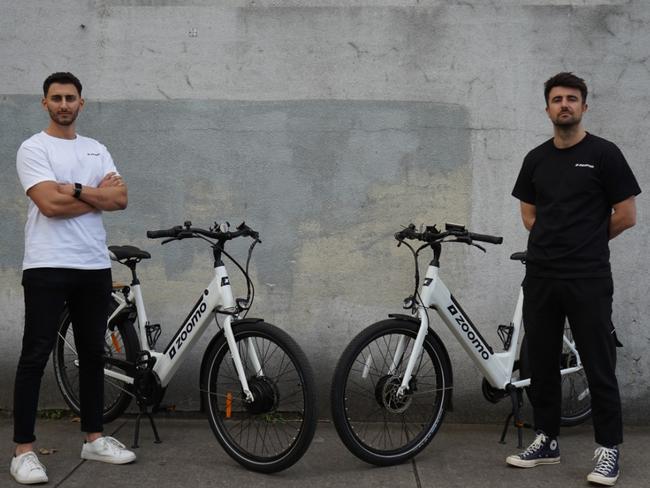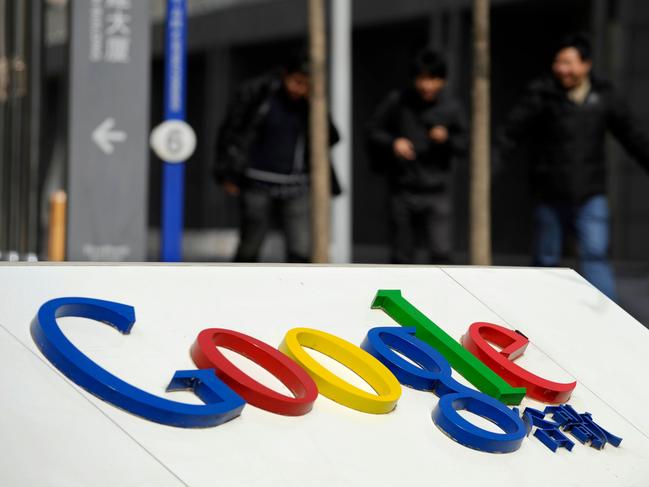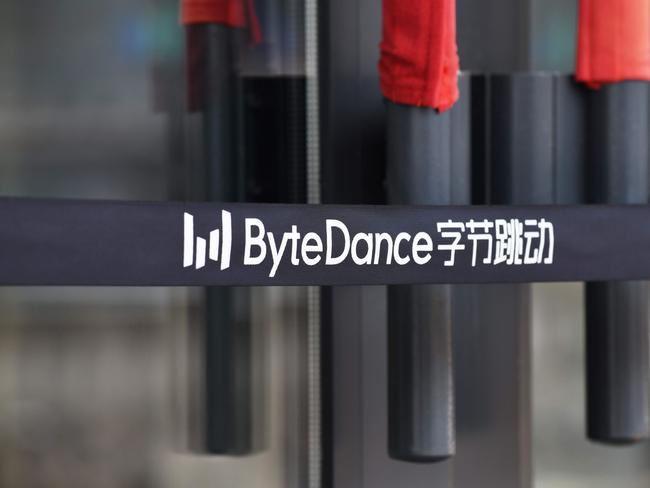Judge ‘inclined’ to block Apple’s move in Fortnite case
The federal judge’s comments are the latest twist in the fast moving Fortnite-iPhone saga.

Hello and welcome to The Download, The Australian’s technology blog for the latest tech news.
Chris Griffith 3.00pm: Voice calling provider MNF Group announces record profit
The pandemic has seen many of us flock to voice calling/conferencing systems such as Zoom and Microsoft Teams.
It’s therefore not surprising that voice communications software provider MNF Group has registered a record profit in the year ending June 30. The company provides voice-over-internet infrastructure and cloud-based communication services that make these services possible.
The company says net earnings (EBITDA) increased 27pc to $38.2m, revenue increased 7pc to $230.9m, and recurring revenue rose 27pc to $101.5m. As a result, the MNF board declared a final dividend of 3.6 cents per share fully franked.
“As a key provider of software for telecommunications and unified communication technologies, we saw increased demand for our products resulting in strong uplifts in revenue, with a focus on recurring revenue,” says chief executive Rene Sugo.
“As people transitioned from workplaces and schools to homes, seeking new ways to stay connected and adjust to new ways of working, we experienced a surge in traffic volumes across all customer segments in March and April.
“While traffic patterns have settled since the highs of March, we have seen new trends emerge, many of which are here to stay.”
Chris Griffith 1.30pm: Zoomo to expand after raising $16m
Mobility start-up Bolt Bikes says it has completed a combined equity and debt capital raise of $16m to accelerate global growth and expansion.
The company makes e-bikes for sale to consumers and the last mile delivery market. It will produce utility bikes under the new brand name Zoomo.

“We offer smart utility bikes through a physical network of service centres and microfinance capability all enabled by world-class software,“ says Mina Nada, chief executive and Zoomo co-founder. ”The investment will allow us to expand our product line-up and physical presence.”
Zoomo plans to expand operations in Melbourne and launch a new base in Brisbane. In the US, it wants to expand its New York base and launch new operations in Los Angeles.
It says Zoomo e-bikes will let couriers deliver packages with far fewer greenhouse gas emissions than the internal combustion engines of most delivery cars and vans.
It says funds were raised through the Clean Energy Finance Corporation ($7m), and equity investments from Hana Ventures, Maniv Mobility, Contrarian Ventures, OneVentures and Viola Credit.
CEFC chief executive Ian Learmouth says expanding the Zoomo fleet can help drive down transport emissions by thousands of tonnes of carbon a year. “Light Electric Vehicles are forecast to lead the charge in reducing emissions, with two, and three-wheeled EVs predicted to abate more carbon emissions than standard/four-wheel EVs until 2043.
“Rapid design improvements mean that LEVs will increasingly outpace cars and vans to deliver meals, post, parcels and groceries, even over several kilometres.”
12.00pm: Judge ‘inclined’ to block Apple’s move
A federal judge on Monday said she was “inclined” to grant Epic Games’ request to block Apple’s move to terminate the “Fortnite” creator’s developer accounts and said she saw “no competition” to Apple’s App Store on the iPhone.
Epic’s antitrust lawsuit filed against Apple earlier this month and an accompanying social media campaign have become the highest profile challenge to Apple’s App Store business. The maker of the popular “Fortnite” battle game alleges that Apple has engaged in anticompetitive behaviour by abusing its dominance in the market for iPhone apps.

Judge Yvonne Gonzalez Rogers said during a hearing that she viewed Epic’s request through “two lenses.” One was with the harm that would come to Epic’s own games, which have been taken out of the App Store. The other was what harm would come to the hundreds of other games that would be hurt if Epic was unable to maintain its Unreal Engine software because Apple terminated all of the company’s Apple developer contracts.
“I can tell you right now that I am inclined not to grant relief with respect to the games, but I am inclined to grant relief with respect to the Unreal Engine,” Gonzalez Rogers said.
Unreal Engine is a software tool for computer graphics that hundreds of other games and other apps use to power their offerings.
Apple removed Epic’s “Fortnite” after Epic rolled out its own method of in-game purchases, rather than using Apple’s system, which charges commissions of between 15pc and 30pc.
Epic Games has asked the court to block the removal of “Fortnite” from Apple’s App Store, claiming the App Store rules violate antitrust laws.
Gonzalez Rogers highlighted Apple’s ban on downloading iPhone apps from outside the App Store in an exchange with Apple counsel Richard Doren.
“There is no competition. The question is, without competition, where does the 30% (App Store commission) come from? Why isn’t it 10? 20? How is the consumer benefiting from, you (Apple) get to say what you want it to be?” she asked.
Doren replied that consumers had choices when deciding to buy an Android device or an iPhone. “The competition is in the foremarket,” he said, reiterating an argument that has been central to Apple Chief Executive Tim Cook’s defence during Congressional antitrust hearings.
Gonzalez Rogers replied that there was “plenty of economic theory” to show that switching brands imposed costs on consumers.
During a terse exchange, Gonzalez Rogers at one point muted Doren in the virtual proceedings. Doren later said Apple would prove at trial that “people switch all the time.”
“It’ll be interesting, like I said,” Gonzalez Rogers replied.
Reuters
David Swan 9.50am: Xero to acquire Waddle
Fresh off a record share price on Monday New Zealand-based cloud accounting software outfit Xero has picked up invoicing start-up Waddle, in a deal worth up to $80m.
Xero will pay $31m in cash for Waddle, as well as subsequent earnout payments worth up to $49m, for the software company.

Xero on Monday closed at a record high of $98.49, having climbed by nearly 25 per cent in 2020.
“Waddle’s lending platform has the potential to enable a wide range of banks, fintechs and other lenders to better support small business financial needs,” Xero chief executive Steve Vamos said.
The transaction is expected to be completed before the end of the 2020 calendar year, and Xero anticipates the transaction, integration, and operating costs will have “minimal impact” on its FY21 earnings.
Chris Griffith 9.30am: Google under pressure in parliament
Google’s recoiling against a draft code that requires it to pay for mainstream news content attracted attention in parliament late yesterday.
Member for Fenner Andrew Leigh reminded the House of Representatives just how many journalists have lost jobs since the rise of the tech titans and loss of advertising revenue to them by newspapers and other media.

“From 2006 to 2016, the number of journalists in Australia fell by nine per cent. Health reporting is down by 30 per cent, and science reporting is down by 42 per cent. In the past decade, more than 100 local or regional newspapers have closed,” Dr Leigh said.
“Never has the Australian media been under more pressure, and never have we needed quality journalism more.”
He said Google had been misleading in its public statements on this issue. “In this environment, the Australian Competition and Consumer Commission has proposed a scheme that asks Google to negotiate fair payment for Australian news content.
“In response, the trillion-dollar search engine launched a misleading scare campaign. Google claims that having to give news organisations advance notice of demotion would give others an unfair advantage. It wouldn‘t. It says that sharing data would lead to data breaches. In fact, Google won’t be required to share any additional user data with media outlets unless it chooses to do so.
“Google makes hundreds of billions of dollars every year. It can afford to share a small slice of that with the news media that is fundamental to Australian democracy.”
Google yesterday published a blog, saying it is prepared to pay more for news content but proposed law is stacked against it. It says it would be hard for it to walk away from a deal in Australia, as law would require it to remove international news from Google News in this country, if it was to remove local news content.
8.30am: Facebook blocks criticism of new Thai king
Facebook has blocked access within Thailand to a group with 1 million members that discusses the country’s king, after the Thai government threatened legal action over failure to take down content deemed defamatory to the monarchy.

The move comes amid near daily youth-led protests against the government led by the former military junta chief and unprecedented calls for reforms of the monarchy.
The “Royalist Marketplace” group was created in April by Pavin Chachavalpongpun, a self-exiled academic and critic of the monarchy.
On Monday night, the group’s page brought up a message: “Access to this group has been restricted within Thailand pursuant to a legal request from the Ministry of Digital Economy and Society.”
Pavin, who lives in Japan, said Facebook had bowed to the military-dominated government’s pressure.
“Our group is part of a democratisation process, it is a space for freedom of expression,” Pavin told Reuters.
“By doing this, Facebook is co-operating with the authoritarian regimen to obstruct democracy and cultivating authoritarianism in Thailand.”
Facebook declined to answer Reuters questions about blocking the group.
Reuters
7.45am: TikTok files suit challenging US ban
Chinese-owned TikTok has sued the US government in federal court, saying that it protects its users’ data and challenging President Trump’s executive order that would effectively ban the video-sharing app if it doesn’t find an American buyer for its US operations.

In the lawsuit, filed in federal court for the Central District of California, TikTok lawyers said that the company has “taken extraordinary measures to protect the privacy and security of TikTok’s US user data” and that it has explained those efforts to the federal government during a recent national security review.
“By banning TikTok with no notice or opportunity to be heard (whether before or after the fact), the executive order violates the due process protections of the Fifth Amendment,” the complaint says.
US officials say they are concerned that TikTok, owned by Beijing-based ByteDance Ltd, could pass on data it collects from Americans streaming videos to China’s authoritarian government. TikTok has said it hasn’t been asked to share data with the Chinese government and wouldn’t do so if asked.
TikTok’s platform has been downloaded more than 180 million times in the US, according to market research firm Sensor Tower.
The Wall Street Journal



To join the conversation, please log in. Don't have an account? Register
Join the conversation, you are commenting as Logout